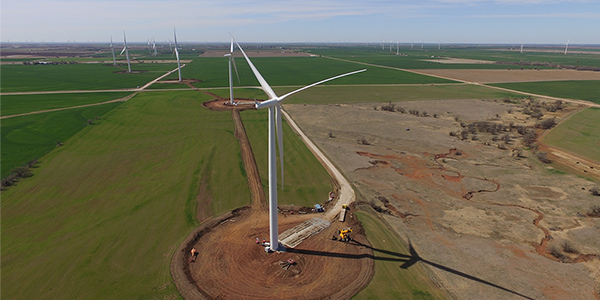Stakeholders are divided over whether MISO has conducted enough analysis to justify the possible adoption of seasonal capacity auctions and loss-of-load expectation (LOLE) studies.
The mixed opinions arose during a June 1 virtual workshop to discuss the next steps in MISO’s resource availability and need (RAN) project. In addition to a possible seasonal LOLE study and capacity auction, the RTO is also considering whether to use the RAN effort to define its own set of reliability requirements and design scarcity pricing that better reflects tight supply.
If it opts for any of those solutions, MISO hopes to make FERC filings in the middle of next year in order to introduce changes by early 2022.
“We’re on a pretty aggressive timeline, and one that needs your input,” MISO Director of Resource Adequacy Coordination Zakaria Joundi told stakeholders.
The RTO is currently drafting a whitepaper on the problem statement behind the next round of proposed RAN fixes. But some stakeholders argue that the RTO doesn’t need another self-published whitepaper — rather, it needs to solicit and include stakeholders’ input.
Madison Gas and Electric’s Megan Wisersky took issue with MISO consistently using the word “enhancement” in RAN solutions.
“You keep saying you’re making ‘enhancements.’ What you’re actually doing is reducing capacity accreditation. So it really doesn’t feel like ‘enhancement.’ It feels like private property is getting devalued over and over again,” Wisersky said, taking aim at MISO’s proposal to cut the capacity credits of load-modifying resources based on lead times and availability, a RAN proposal. (See MISO Delays New LMR Accreditation Launch.)
“We’re seeing the risk move away from the summer peak,” Joundi said. “The current annual construct does not reflect a changing risk profile and evolving resource needs.”
More Analysis?
Customized Energy Solutions’ David Sapper asked for more analysis to prove that MISO really does face reliability risks outside of a summer peak.
WPPI Energy’s Steve Leovy said while he believes there is probably a loss of load risk in September, he doesn’t believe MISO has demonstrated a material risk outside of summer until it prepares a full LOLE analysis on par with those prepared for the Planning Resource Auction.
“That leaves a very real prospect that we could launch into a seasonal PRA … and it could just be a waste of everyone’s effort if you don’t have material risk outside of summer. There’s not been a showing that the annual construct is inadequate. If we see it, we’ll shut our mouths, but we don’t see it,” Leovy said.
“MISO staff points to conclusions. MISO staff says, ‘Okay, we’ve had emergencies outside of summer months, but there’s nothing more than that to prove we have a problem in the off-peak season,” the Coalition of MISO Transmission Customers’ Kevin Murray said.
Minnesota Public Utilities Commission staff member Hwikwon Ham argued that MISO’s changing risk profile is clear in its renewable integration impact assessments, but he, too, pressed for a full LOLE study that could show risk beyond summer.
“I think we have an issue, but that issue isn’t properly translated into the LOLE study,” he said.
Ham also told MISO staff that it’s time to design a long-term solution and put an end to its incremental RAN solutions that focus on generator outage scheduling and LMR availability.
Consumers Energy’s Kevin Van Oirschot countered that incremental solutions pose the least risk of damage to the market.
Other stakeholders said MISO’s increasingly common maximum generation emergencies are justification enough for a seasonal parsing of reliability risks or capacity.
“Xcel Energy is ready to move forward,” Kari Hassler said of her company. “We believed that the current construct worked well … but times are changing, resources mixes are changing, operations are changing. The matching up of seasonal variations makes sense. We don’t need any more studies. We’ve been dragging this out for a year-and-a-half; we’re ready to move forward.”
Hassler argued that an LOLE study in search of non-summer risk has to be done “for the future, not for yesterday.” She said data used in such an analysis should be forward-looking, not historical. Multiple stakeholders said forward-looking data should include planned resources in the interconnection queue.
“We need to look at the future years rather than saying, ‘You need to show us evidence that relies on historical data.’ I think that’s the wrong argument,” Ham agreed.
“Even if we don’t have non-summer risk, we think there’s value in a seasonal construct. The seasonal capabilities of our resources are dramatically different,” WEC Energy Group’s Chris Plante said.
Gabel Associates’ Travis Stewart argued that MISO’s three dozen maximum generation emergency events and warnings since 2016 are justification enough for change.
“Such a frequency of emergency events doesn’t occur in any other RTO,” he said. “The time is ripe for change.”
Stewart said MISO should examine all capacity resource accreditations, not just LMRs.
MISO Executive Director of Market Strategy and Design Scott Wright said that the capacity the Planning Resource Auction clears and “what actually shows up” are two different things.
The RTO has said its current capacity accreditation processes don’t match up with actual capacity resource availability, don’t reflect resource availability in months outside of summer and don’t account for operational differences between capacity resources.
Multiple stakeholders on the call asked that MISO create reliability requirements before it begins tinkering further with capacity resource accreditation. Many worried aloud that the RTO might penalize necessary planned generation outages.
“Just saying, ‘Why aren’t you there?’ is short-sighted. There are legitimate reasons to be unavailable,” Northern Indiana Public Service Co.’s Bill SeDoris said.
Wright thanked stakeholders for their frankness during the workshop and said MISO staff will consider comments when making RAN proposals.
“We didn’t want to have 25 slides and have MISO speak. We wanted to hear you,” Wright said of the workshop format.
The RTO plans to hold more RAN workshops with stakeholders before settling on which future filings it may pursue.





